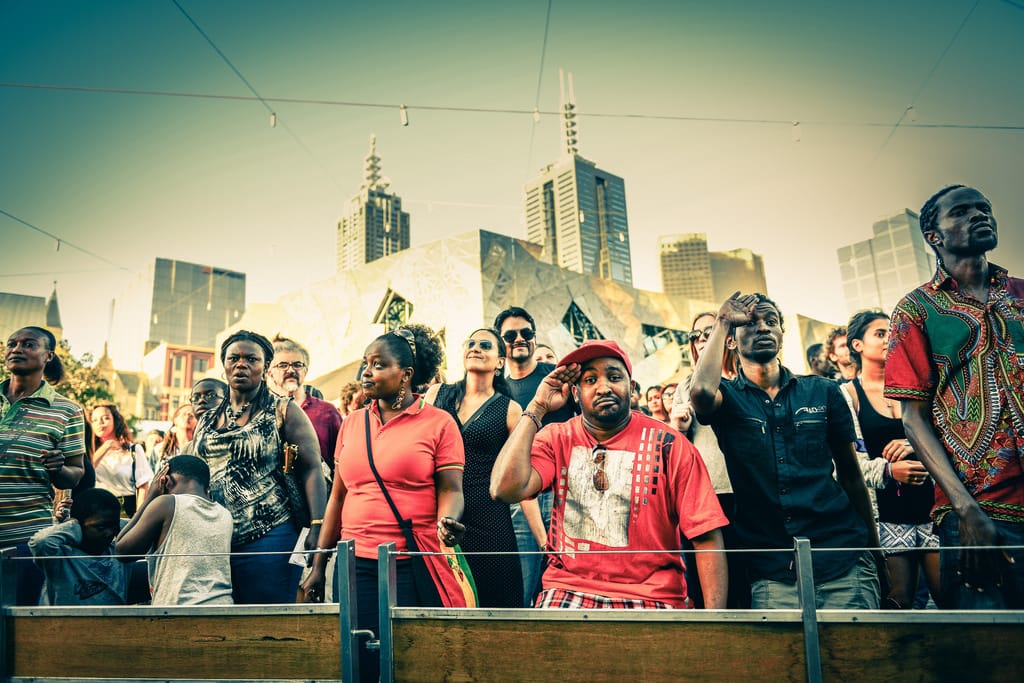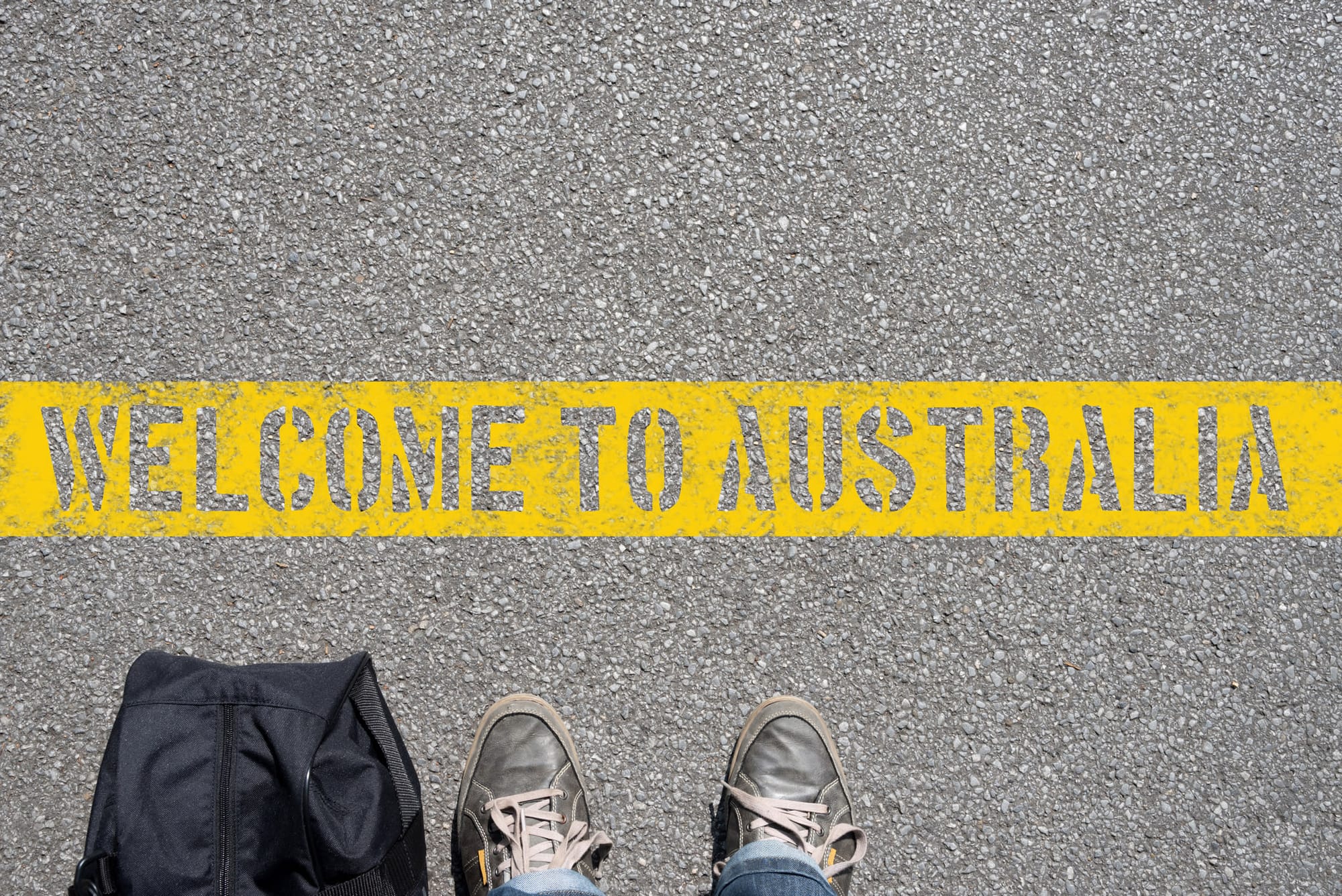
Australia presents two contradictory faces to the world – two opposing myths, says Alan Gamlen, Associate Professor of Human Geography at Monash University.
One is the myth of the “multicultural paradise, everything is great here, this is a land of immigrants”.
On the flip side is “this negative, Janus-faced stereotype of Australia as the refugee-hating pariah state”.
As a migration researcher and a recently arrived migrant from New Zealand, Dr Gamlen admits that he's fascinated by the duality. “I haven’t figured out where the truth lies between those two extremes,” he says. “I doubt that either of them is fully accurate.”
On Monday, March 19, Dr Gamlen will introduce a forum at the Immigration Museum, #African Gangs: Beyond Politics and Media Headlines. The forum is a response to the “moral panic around African youth crime” that dominated the media over the summer, Dr Gamlen says.
The low point was Immigration Minister Peter Dutton’s claim that Melburnians were “scared to go out to restaurants at night-time because of these so-called gangs; that even the police said didn’t exist”.
Some members of the South Sudanese community countered the negative propaganda with the #AfricanGangs Twitter campaign, in which they shared pictures of themselves socialising, graduating from university, running businesses, celebrating the birth of a child or working in hospitals.
Dr Gamlen is a member of Monash University’s Population, Migration and Social Inclusion focus program. He approached other academics in the program, including Associate Professor Rebecca Wickes, the deputy director of the Centre of Social and Population Research, to help organise the forum. She says political leadership has a role to play, but it’s not as simple as targeting minority groups.
“The media attention over African 'gangs' demonstrates how rhetoric can promote fear and intolerance for short-term political gain.”
“I think our role as academics is to revive the dying art of civil discussion,” Dr Gamlen says. “We need to make sure that facts are a key part of discussions on migration, and that those facts are reasoned through – not just in a sensationalist way by mass media.”
A steering committee was formed – including the creators of #AfricanGangs – and a program devised. The idea was to allow the members of Melbourne’s diverse African communities to speak and be heard in a respectful forum. “We want to have a high-level discussion about what the problems are, but also to look at some of the positive things that are going on and what the future might look like,” Dr Gamlen says.
As a human geographer, he has a particular interest in diasporas. This was sparked when he was a graduate studying ethnomusicology – the music of migrants and minorities – in Japan.
“While I was there I experienced race in a way that is unusual for someone who is identified as white,” he recalls. “I'm part Maori, so I had never thought of myself as a ‘white’ person. But in Japan I was one of the white ones, and a foreigner. So it was an interesting experience. You want to fit in, but you realise that you never will.”
In Australia, African migrants are also often spoken of as one undifferentiated group “for racial reasons” despite their “great internal diversity”, says Dr Gamlen. “But they're people from different ethnic groups, different religions, languages and cultures.”
Dr Gamlen readily admits that in Japan he didn't “have to experience being part of a marginalised and looked-down-upon ethnic group ... I didn’t have to contend with that. It’s a relatively positive thing to be white in Japan.”

What is the difference between a diaspora and an immigrant group? Dr Gamlen says it's a “blurred line”.
One of the characteristics of a diaspora is the "homeland orientation" of its members – who continue to identify with their “real or imagined homeland”. Their connection to the homeland might be private and emotional, but it can also be economic – supporting family members at home, say, or political causes. Members of diasporas occupy two worlds at once.
What do members of the various African diasporas have to teach us?
“One of the main things is what their experience here is like,” he says. “They can speak up for themselves. They can make us listen to that and process it seriously, and talk about it in a way that is mature and dignified, in a way that respects facts and uses reason. Now that they're part of this society, they can hold the rest of us to account.”
"Now that they're part of this society, they can hold the rest of us to account.”
Living in two worlds can take its toll.
“People are now questioning the benefits of migration, whether it really is all good,” he says. “There has been talk among international organisations for 20 years, and among donor states, about how migration can be a win-win-win – for origin states, for destination states and for migrants themselves. We're seeing some global compacts being written right now, about refugees and migration, that is based on that thinking, that migration is good for everybody.
“But we're also seeing a backlash against that. In the US, in the rise of Donald Trump, in the UK, with the Brexit vote and the rise of right-wing populism across the EU, and the rise of parties like Pauline Hanson’s One Nation in Australia …
“The external labels and pressures on migrants is mirrored by their own feelings of ‘this isn’t quite so great as I thought it was going to be’.
It's all part of a re-evaluation of whether migration is good or bad. ‘Dwelling differently’ is part of the experience of diasporas. And that's not easy, you know? To consign yourself, at least temporarily, to the role of an outsider, essentially. It’s courageous.”
The forum #African Gangs: Beyond Politics and Media Headlines is an initiative of Monash University’s Population, Migration and Social Inclusion focus program.





